Texas Teenagers Win Prestigious Award For Inventing Device That Filters Microplastics From Water
May 26, 2024
Today's good news story comes from Los Angeles, California.
In a remarkable achievement for young innovators, Victoria Ou and Justin Huang, both 17-year-old students from Texas, have developed a pioneering device that uses ultrasound technology to filter out harmful microplastics from water.
Their invention has earned them the esteemed Gordon E. Moore Award at the Regeneron International Science and Engineering Fair (ISEF), a prestigious annual competition administered by the Society for Science, a non-profit organization based in Washington, D.C.
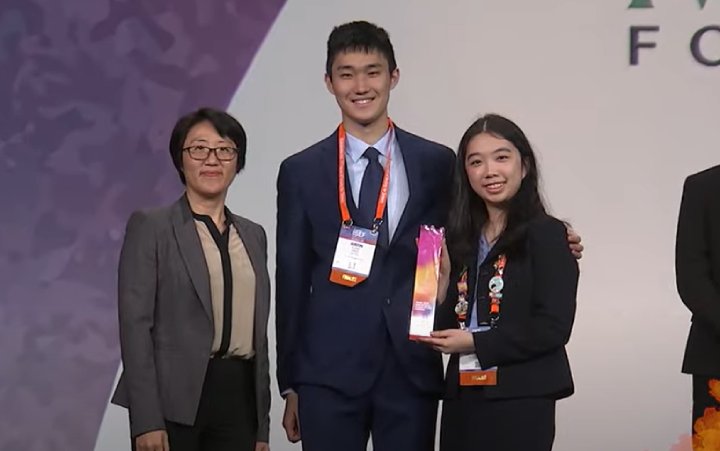
Justin and Victoria / Credit: Society for Science
Microplastics, minuscule particles resulting from the breakdown of plastic waste, are pervasive contaminants that infiltrate water sources, food supplies, and even the human bloodstream. Addressing this critical environmental and public health issue, Ou and Huang's innovative device employs a novel ultrasound filtration system to effectively remove these particles from water.
The device, constructed with piezoelectric transducers attached to steel tubes connected by silicon tubing, harnesses the power of acoustic radiation force generated by ultrasound. When water containing suspended microplastics passes through the system, these forces prevent the particles from passing, resulting in microplastic-free water.
Their device demonstrated impressive efficiency during testing, achieving filtration rates of 84-94% for polyethylene microplastics at flow rates of 10, 20, and 40 mL/minute in a single-stage setup. In a two-stage configuration, the efficiency increased to 94-96%. Comparable results were observed with other common microplastics, including polyurethane and polystyrene, yielding filtration efficiencies exceeding 95%. Additionally, the system proved effective in filtering microplastics from laundry water and managing microplastic build-up in highly concentrated or large volumes of water.
"This is the first year we've done this," Huang shared with Business Insider after receiving their award. "If we could refine this—maybe use more professional equipment, maybe go to a lab instead of testing from our home—we could really improve our device and get it ready for large-scale manufacturing."
Watch the video below.
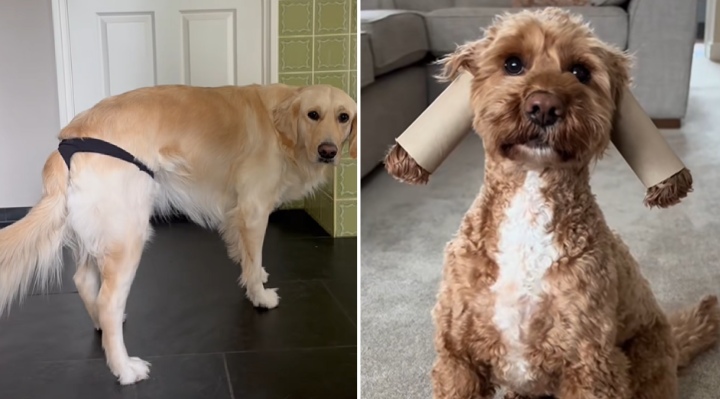 Dogs Are Forced To Wear The Things They Steal — And It’s Hilarious
Dogs Are Forced To Wear The Things They Steal — And It’s Hilarious
 Meet Nazgul: The Dog Who Crashed An Olympic Ski Race And Nearly Won
Meet Nazgul: The Dog Who Crashed An Olympic Ski Race And Nearly Won
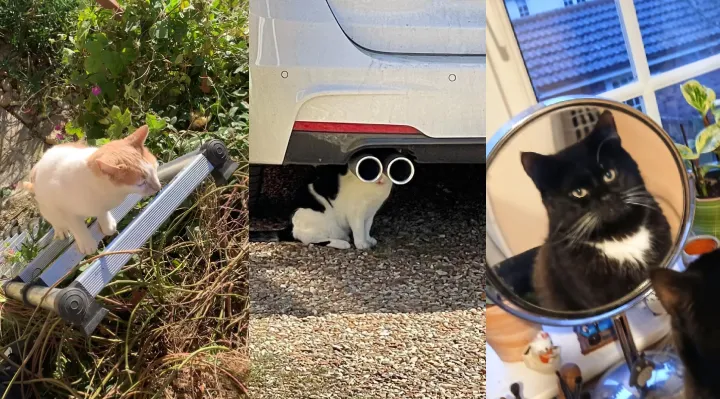 People Are Submitting Photos of Their Cats’ ‘Jobs’— And We Can’t Stop Laughing
People Are Submitting Photos of Their Cats’ ‘Jobs’— And We Can’t Stop Laughing
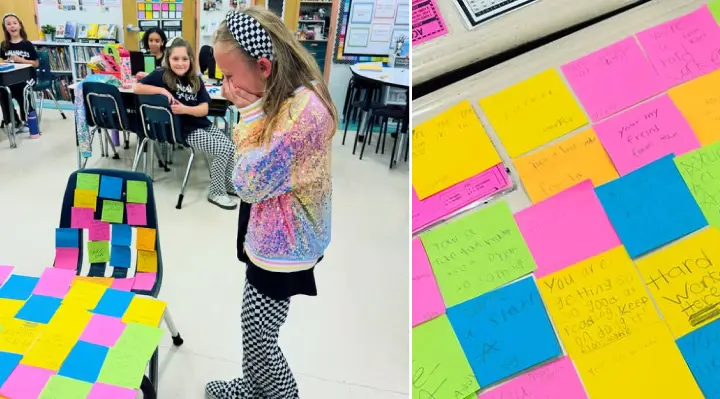 She Was Feeling Low On Confidence, So Her Classmates Covered Her Desk In Sticky Notes
She Was Feeling Low On Confidence, So Her Classmates Covered Her Desk In Sticky Notes
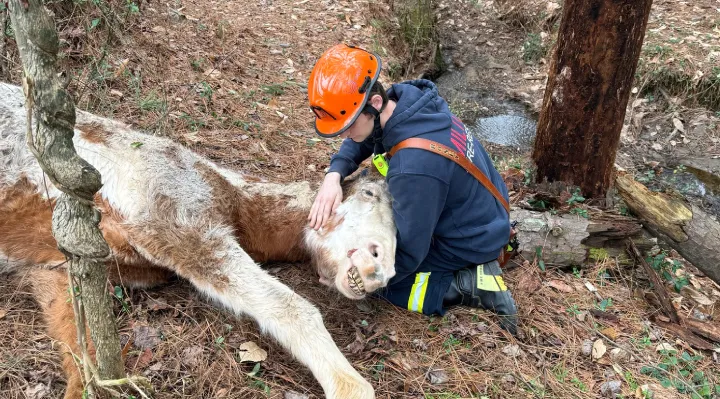 A Childhood Bond Reunited: Firefighter Saves The Horse That Taught Him To Ride
A Childhood Bond Reunited: Firefighter Saves The Horse That Taught Him To Ride
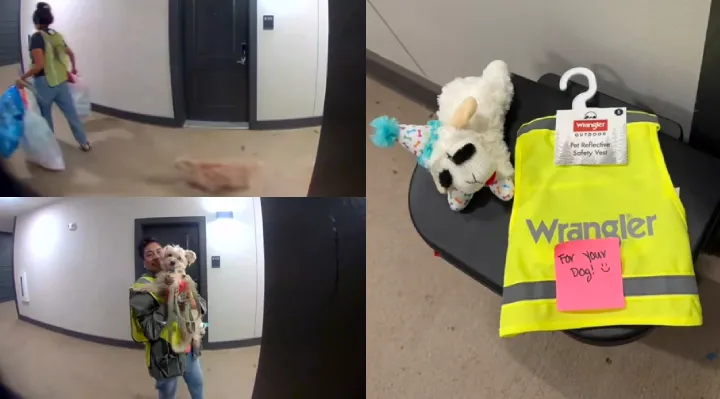 She Collects Trash 5 Days A Week With Her Dog — So A Resident Gifted Her Dog A Matching Vest
She Collects Trash 5 Days A Week With Her Dog — So A Resident Gifted Her Dog A Matching Vest
 Mom Was About To Miss Her Flight, So A Stranger Picked Up Her Kid And Ran With Her
Mom Was About To Miss Her Flight, So A Stranger Picked Up Her Kid And Ran With Her
 She Gave Her Dad The One Thing He’d Been Searching For His Whole Life
She Gave Her Dad The One Thing He’d Been Searching For His Whole Life
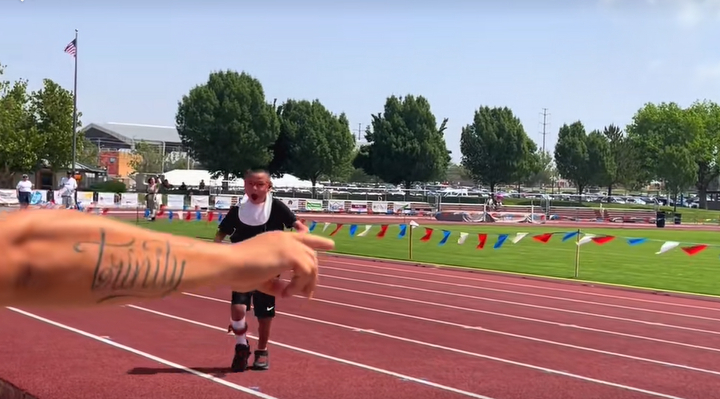 Son Stops Mid Race To Give His Mom A Kiss During The Special Olympics
Son Stops Mid Race To Give His Mom A Kiss During The Special Olympics
 Reporter Asks Eileen Gu 'Do You Think Before You Speak?' — Her Answer Is Going Viral
Reporter Asks Eileen Gu 'Do You Think Before You Speak?' — Her Answer Is Going Viral
 He Went Back To Pay The Man Who Helped Him — But That’s Not What Happened
He Went Back To Pay The Man Who Helped Him — But That’s Not What Happened
